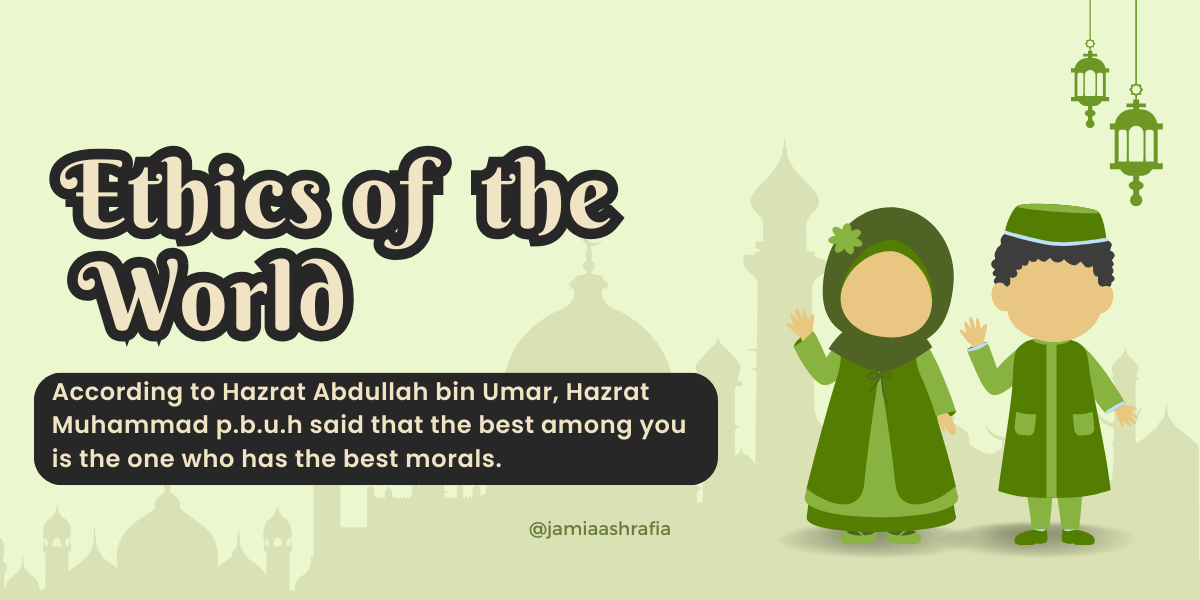Ethics of the World and the Hereafter
According to Hazrat Abdullah bin Umar, Hazrat Muhammad p.b.u.h said that the best among you is the one who has the best morals.
After emphasizing the importance of Islam, another thing that Hazrat Muhammad p.b.u.h considered significant is your morals and preventing yourself from bad manners. Hazrat Muhammad p.b.u.h was sent to guide Muslims and tell them the difference between right and wrong. One thing mentioned in the Holy Quran is that he was sent to purify his ummah. It was Hazrat Muhammad’s p.b.u.h duty to make his ummah morally upright.
Ethics plays a vital aspect of our lives. If a person has good ethics, his life will be very peaceful and pleasant. A morally upright person will also make life easy for others by telling them the importance of it. On the other hand, if a person has no morality, he will not only make his life unpleasant but also cause problems for everyone else around him. If we understand the true meaning and essence behind this, we will make the entire world a happy and peaceful place.
Ethics are not only important for this world but also an essential aspect of life after death. In the hereafter, people with good ethics will be rewarded by Allah. The reward for good ethics is pleasure and mercy and the punishment for bad ethics is torture and hellfire.
Hazrat Muhammad p.b.u.h has praised people who have good morals, and he also said, “Among you all, the best Muslims are those who have good morals”. If their morals are strong, it means their faith is strong too. It means if someone is faithful apparently but does not have good morals, then that person is not a true believer. Hazrat Muhammad p.b.u.h said that on the day of judgment, good morals will have a huge impact on deciding your fate.
Once, some sahaba asked Hazrat Muhammad p.b.u.h what is the best thing a believer can ask for. He said, “Good morals”. This tells us the significance of morals in defining your faith. In Islam, moral principles form the foundation of a righteous life, guiding individuals in their interactions with others and their relationship with God. The emphasis on moral integrity reflects a broader commitment to living a life that is pleasing to Allah, where actions are aligned with the principles of fairness, compassion, and humility. Through these values, Islam seeks to build a society rooted in mutual respect and understanding, where each person plays a role in fostering a harmonious and just environment. May Allah grant us all good ethics with faith which can make our lives easier.

